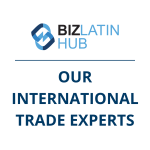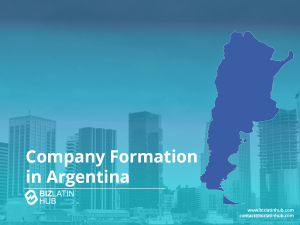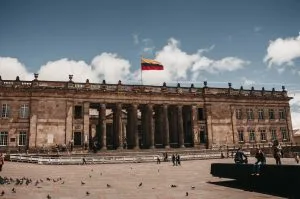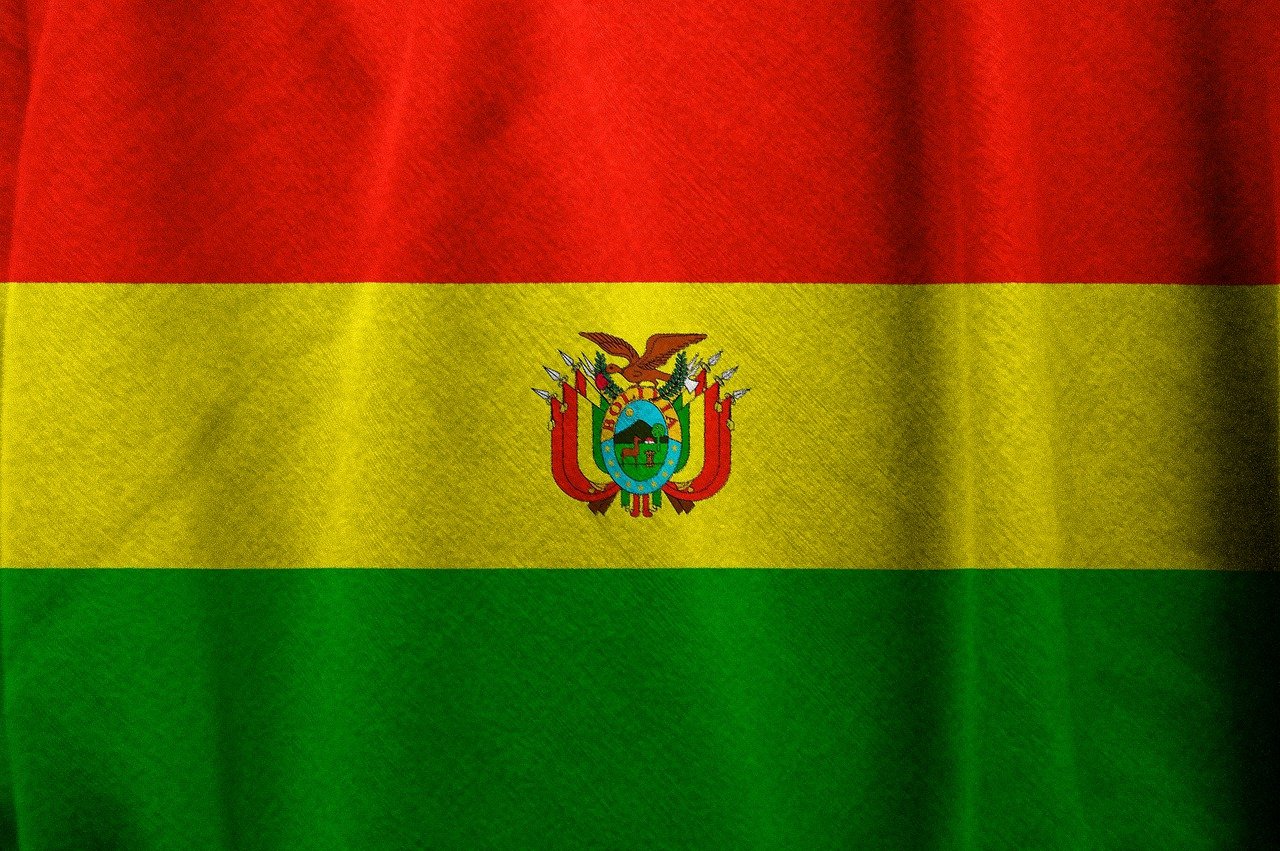The process to import and export in Chile can be straightforward once all the requirements are met and paperwork is handled appropriately. However, knowing what to do, how to do it and when to do it requires a little knowledge. That’s why we’ve provided this general overview of the importation/exportation system for you. However, be aware that for specific products it may be necessary to contact us for more detailed information.
As one of the most developed countries in Latin America, Chile surges ahead in economic strength and technology adoption. Setting up a company in Chile can be seen as the gateway to the wider region. Businesses looking to import and export in Chile are in the prime position to trade with the rest of the region and other key partners, for example in cross-Pacific routes.
Biz Latin Hub can help you to import and export in Chile, whether that involves company formation, help in setting up a subsidiary or opening a branch. Our full array of back office services can help with every aspect of your business performance, from accounting and legal through to hiring and firing. With 18 dedicated local offices across Latin America and the Caribbean, we can help anywhere else in the region as well.
Why import and export in Chile?
Chile’s political climate favors free international trade. Import and export activities in Chile benefit from 26 free trade agreements (FTAs) that give the country access to 64 international markets.
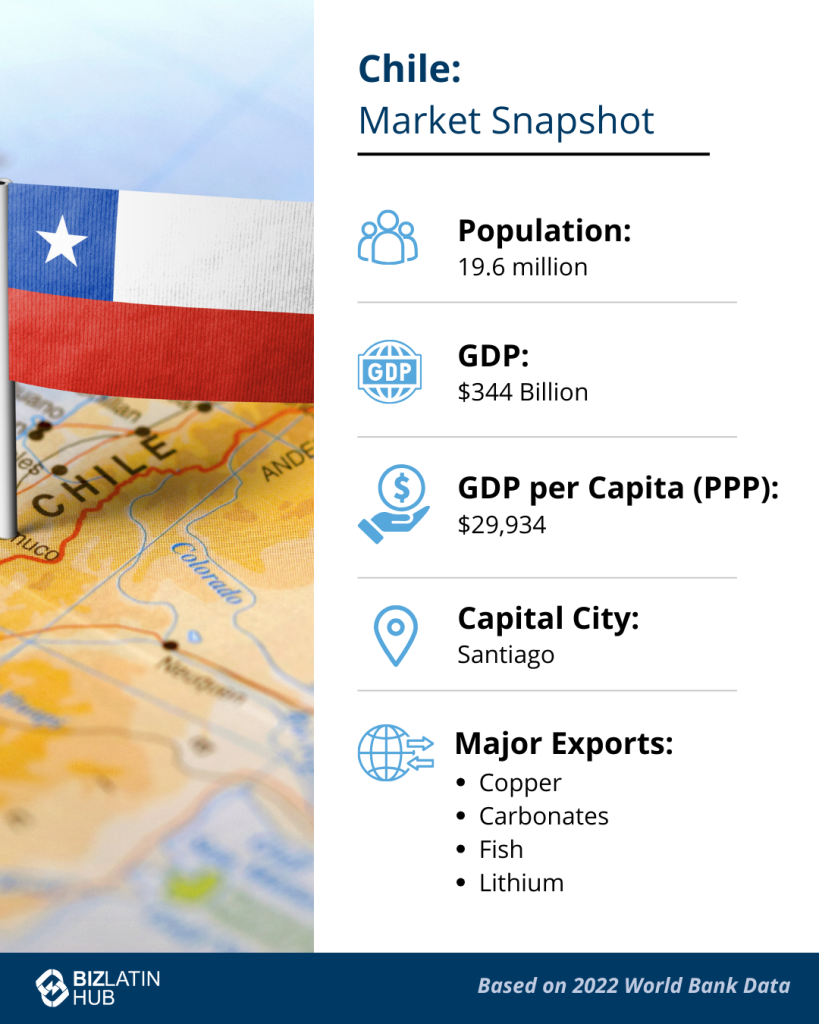
Chile is the forty-second largest exporting economy in the world. The categories of the main products imported are minerals, industrial, agricultural and forest imports. The main items exported are copper, salmon, molluscs, crustaceans, canned fruits, fish oil, cellulose, sawn timber, plywood, berries, blueberries and minerals.
Chile’s main trading partners are China, the US, the European Union, Japan, Mercosur, South Korea, the Pacific Alliance and more. In addition, Chile’s trade to GDP ratio is 57.5%, which means that the economy is reliant on international trade. The government therefore works to reduce or eliminate barriers to trade, offering an attractive business environment for companies moving into the region with a desire to do business across borders.
The Chilean regulations that govern customs matters are:
- the Decree with Force of Law 30/2004, updated in March 2017
- the Organic Law of the National Customs Service, and
- the Decree 514 of the Finance Ministry.
National Customs Service (SNA)
The entity that regulates import and export in Chile is the National Customs Service (Servicio Nacional de Aduanas, or SNA). SNA is a public entity that monitors and oversees the transport of goods through Chilean coasts, borders, and airports.
How to Import into Chile
The merchandise value of your goods is important in this process, as there are two pathways to import into Chile depending on the import value. In valuing the merchandise, the free on board (FOB) value is utilized.
The FOB value is the final value of merchandise, including the original price from the country of origin, freight expense, insurance and other expenses incurred to deliver the merchandise to the final customs office.
1. Merchandise with a FOB value higher than USD$1,000
In this case, the importer must hire a customs agent. The importer has to provide the agent with the necessary documents required to submit the Entry Declaration (Declaración de Ingreso) before the SNA.
The mandatory documents that importers must provide include:
- Shipment document: the original bill of lading, letter of international carriage or air waybill that prove ownership of the merchandise by the consignee, the receiver.
- The original commercial invoice: this document accredits the merchandise as an object of sales and its values.
- Certificate of insurance: This document should include the amount of the premium paid
- Affidavit on the merchandise price: This document should be submitted by the importer to the customs agent.
- Mandate: document constituted by the sole endorsement of the original shipment document
It is important to mention that when the insurance premium amount is designated in the commercial invoice, it’s not necessary to provide the certificate of insurance. Additionally, the certificate is not mandatory, but it is frequently used to make the approval process smoother.
There is some additional documentation that prospective importers may be asked to provide, depending on their chosen goods to import. It’s best to check with your customs agent in Chile whether you need to provide this information.
The documents required in particular cases include:
- Original certificate of origin: in case the merchandise is eligible for tariff exemption of preferences by trade agreements
- Packing list: this must always correspond to merchandise packed in full containers
- Expense note: you’ll need to provide this information separately, if it isn’t already included in the commercial invoice or when the merchandise purchase has an ex-factory clause.
- Permits, visas, certifications or approvals: sometimes required according to the type of merchandise you want to import.
2. For merchandise with a FOB value lower than USD$1,000
If your goods carry a FOB value of less than USD$1,000, the import process is a Simplified Processing (Tramitación Simplificada). This process can be performed by the importer in person before the Customs office of the merchandise jurisdiction.
Necessary documentation for this step includes:
- Original shipment document: Original lading bill (by sea), letter of international carriage (by land) or air waybill (by air)
- Commercial invoice
- Certificate of insurance with the amount of the premium paid
- Power of attorney: in case the process is handled by a third party
- Certifications or approvals when required for particular merchandise.
Tariffs
The general import ad valorem right is 6%, calculated over the cost, insurance, freight (CIF) value. Additionally, there is the value-added tax, VAT (Impuesto al Valor Agregado, IVA) equal to 19% and calculated over the CIF and the ad valorem tariff.
For instance:
| CIF value | US$1000 |
| Ad valorem (6% of US$1000) | US$60 |
| VAT (19% of US$1060 ) | US$201.4 |
| Total customs tax | US$261.4 |
In the case of the existence of a bilateral agreement between Chile and the country of origin of the merchandise, the ad valorem tax can be reduced or exempted. However, the VAT must be paid.
All merchandise can be imported to Chile unless specified otherwise by legislation. Depending on the nature of goods, it might be necessary to submit an authorization, approval, or control by the appropriate regulatory organization.
The list of merchandise that requires previous approval includes firearms, explosives, alcoholic beverages, vinegar, alcohols, vegetables, animals, fertilizers, pesticides, pharmaceutics, radioactive, human remains, flora and fauna specimen among others. Chile’s customs site includes a complete list of these goods, along with the organizations that issue the certification or approval for each item.
Merchandise with additional tax
Import and export in Chile are regulated by the laws and decrees. When importing, there are additional taxes that apply to certain products depending on regulations that seek to protect national industries or the population’s wellbeing.
- 15 % additional tax: Articles of gold, platinum and ivory, jewels, natural or synthetic gemstones, high-end carpets, high-end tapestries, high-end skins, canned caviar and its substitutes, and air or compressed gas weapons, its accessories, and projectiles. The prohibited items are qualified as such by the internal revenue service (IRS) and specifications can be found on the agency’s website.
- 50% additional tax: Pyrotechnic items, such as fireworks, firecrackers with the exception of goods for industrial, mining, light signaling or agricultural use.
- other additional taxes: Alcoholic drinks, fancy drinks, and tobacco.
- In the case of second-hand goods that receive authorization, there is an extra charge of 3% over its CIF value.
Payment
The payment for the tariff can be fulfilled once the Import Declaration is validated by Customs. It can be done electronically or through authorized financial entities.
Importers have 15 days to pay for their customs rights, counted from the day the merchandise is received and the Entry Declaration is emitted. If the payment is made after the assigned date, additional fees will apply for late payment. Additionally, if the merchandise isn’t lifted from the Customs warehouse after 90 days, they are presumed to be abandoned and additional fees apply over its rights.
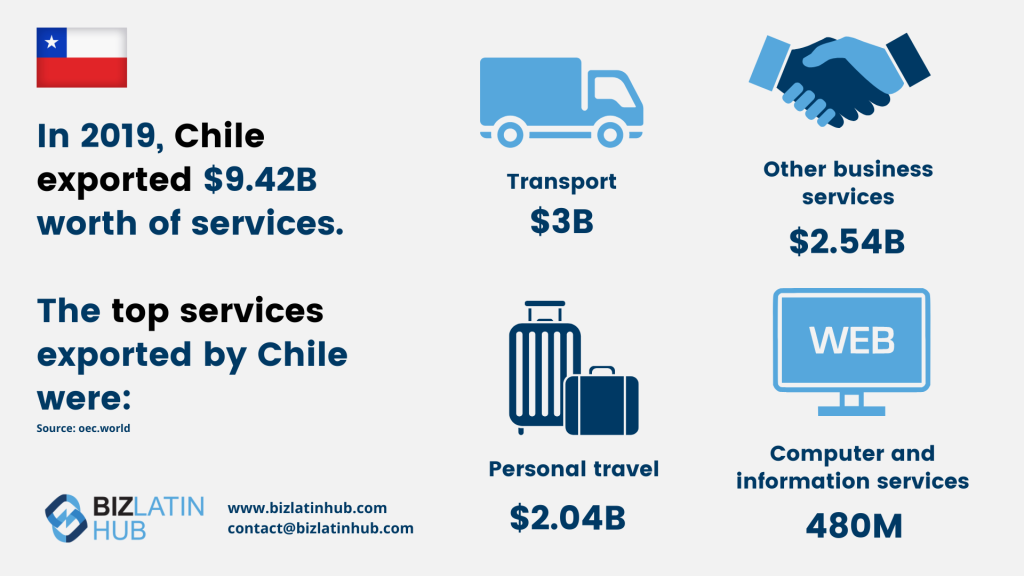
Import and export in Chile: How to export from Chile
Before beginning exporting activities from Chile, the exporter must be able to issue an export Invoice and register or expand its line of activities to include exporting. To do this, the exporting company should have a unique tributary role (Rol único tributario, RUT) number and submit the Activity Commencement form on the IRS website or in person at the IRS office correspondent to the company’s jurisdiction. Additionally, the exporter or company must be up to date with its tax commitments.
1. Merchandise with a FOB value higher than USD$2,000
When the exporter’s goods are valued at over USD$2,000, the exporter must hire a customs agent, and should prepare all necessary documents that the agent will need to process the merchandise shipment.
The list of the required documents that the agent will need:
- A mandate: Power of attorney that will allow the customs agent to handle exporting procedures on behalf of the merchandise exporter.
- Sale receipt that contains the description and quantity of goods, stamps in the container, net weight, name and code of the exporter’s customs agent
- Shipment document: This accredits the existence of the transport contract and the freight value
- Export Invoice
- Packing list: document prepared by the exporter and should include the net weight, and measurements of each package
- Insurance
- Certificate of Origin.
2. Merchandise with a FOB value lower than USD$2,000
For export goods valued at less than USD$2,000, it is not necessary to hire a customs agent and the exporter can process the export in person, submitting the unique exit document (Documento Unico de Salida, DUS) before the respective customs office.
Generally, exporting merchandise from Chile is exempt from tariffs and VAT (Impuesto al Valor Agregado, or IVA in Spanish), unless a law specifies otherwise.
VAT recovery
Exporting products in Chile allows the exporter to claim a refund on VAT on the expenses incurred when paying for the necessary materials to manufacture the merchandise or exported service.
To recover the VAT, the exporter should submit an application at the IRS office correspondent to the commercial address of the taxpayer.
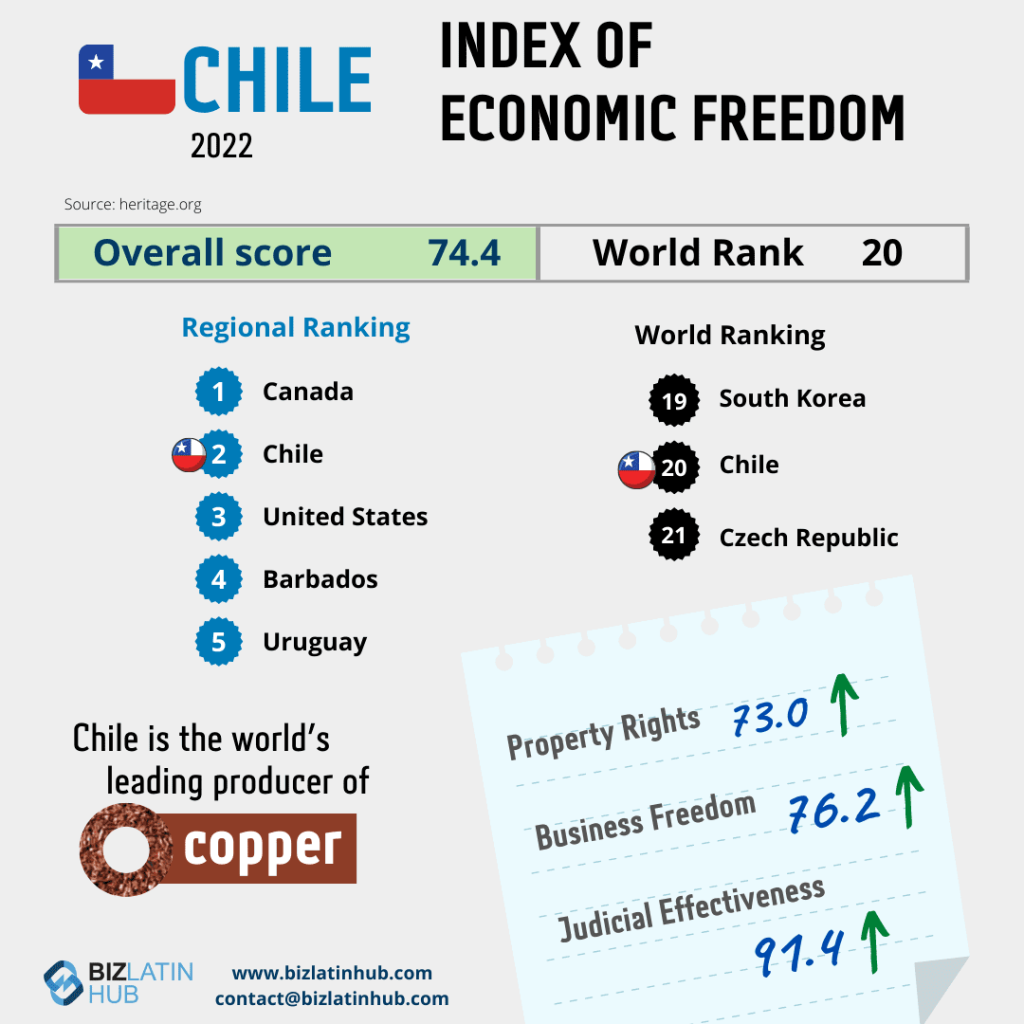
FAQs on how to import and export in Chile
Yes, Chilean companies can be 100% foreign-owned.
The entity that regulates import and export in Chile is the National Customs Service (Servicio Nacional de Aduanas, or SNA). SNA is a public entity that monitors and oversees the transport of goods through Chilean coasts, borders, and airports.
The mandatory documents that importers must provide include:
Shipment document: the original bill of lading, letter of international carriage or air waybill that prove ownership of the merchandise by the consignee, the receiver.
The original commercial invoice: this document accredits the merchandise as an object of sales and its values.
Certificate of insurance: This document should include the amount of the premium paid
Affidavit on the merchandise price: This document should be submitted by the importer to the customs agent.
Mandate: document constituted by the sole endorsement of the original shipment document
For exportation, when the exporter’s goods are valued at over USD$2,000, the exporter must hire a customs agent, and should prepare all necessary documents that the agent will need to process the merchandise shipment.
The list of the required documents that the agent will need:
A mandate: Power of attorney that will allow the customs agent to handle exporting procedures on behalf of the merchandise exporter.
Sale receipt that contains the description and quantity of goods, stamps in the container, net weight, name and code of the exporter’s customs agent
Shipment document: This accredits the existence of the transport contract and the freight value
Export Invoice
Packing list: document prepared by the exporter and should include the net weight, and measurements of each package
Insurance
Certificate of Origin.
Incoterms are developed and regulated by the International Chamber of Commerce (ICC). With 3 distinct letters, the ICC uses incoterms to define the responsibilities and obligations of the exporter and importer. It takes into account, in particular, loading and transport information, type of transportation used, insurance, risks, and place of delivery.
The categories of the main products imported are minerals, industrial, agricultural and forest imports. The main items exported are copper, salmon, molluscs, crustaceans, canned fruits, fish oil, cellulose, sawn timber, plywood, berries, blueberries and minerals.
Biz Latin Hub can help you import and export in Chile
Interested in setting up an international commerce business? The process to import and export in Chile can be straightforward if all documentation is correct and in compliance with the law, make sure to meet all regulations regarding international trade in Chile. Get professional assistance from a trustworthy legal team and customs agent, and avoid extra fees or the withholding of your merchandise.
At Biz Latin Hub, we have an experienced team of lawyers and accountants that help businesses of all sizes operate in Chile. We have vast experience in business incorporation, trade law and other legal services, auditing and more.
Contact us now and get started with your venture.
Learn more about our team and expert authors, and check out our short presentation on how to form a company in Chile.


